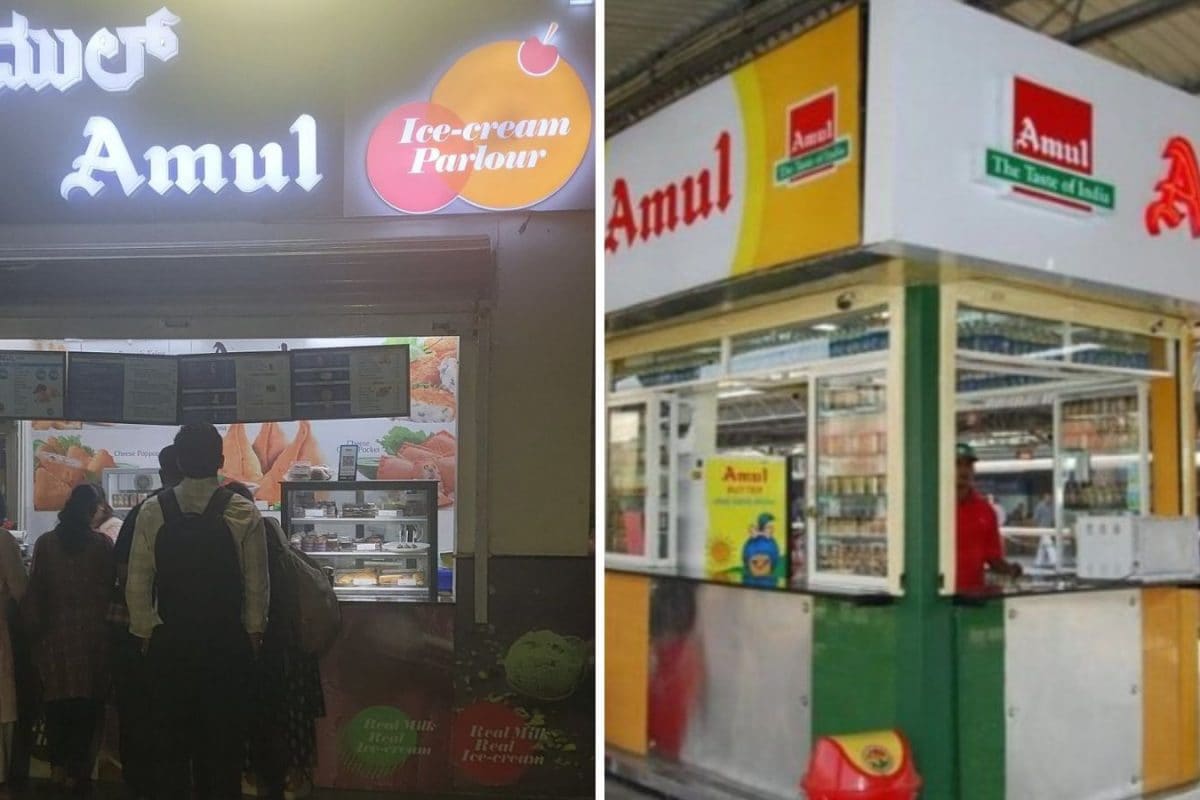

The recent decision to allow Amul, the Gujarat-based dairy giant, to set up kiosks at ten Bengaluru Metro stations has ignited a fresh controversy in Karnataka, stirring up the long-standing debate between Amul and the state's beloved Nandini brand. This move by the Bengaluru Metro Rail Corporation Limited (BMRCL) has been met with criticism from opposition parties and pro-Kannada groups, who accuse the Congress-led state government of undermining the interests of the Karnataka Milk Federation (KMF), which owns Nandini.
The BMRCL's announcement, made in its newsletter on June 16, 2025, detailed a licensing agreement with the Gujarat Co-operative Milk Marketing Federation Ltd (GCMMF), the company behind Amul. The kiosks are slated to offer a wide array of Amul products, including dairy items, chocolates, snacks, and edible oils, at stations like Pattandur Agrahara, Indiranagar, Majestic, and Banashankari. BMRCL justified the decision as part of its strategy to boost non-fare revenue following a recent fare hike.
However, the move has triggered a political backlash, reminiscent of the controversy that erupted in the lead-up to the 2023 Karnataka Assembly elections when Amul announced its plans to sell milk and curd in Bengaluru. Back then, the Congress, then in opposition, framed Amul's entry as a threat to Nandini and the livelihoods of local farmers, accusing the BJP government of favoring the Gujarat-based cooperative.
Now, with Congress in power, the opposition is seizing on the metro kiosk deal to accuse the government of hypocrisy. JD(S) leader H.D. Kumaraswamy has alleged that Deputy Chief Minister D.K. Shivakumar and the Congress government have "betrayed Kannada pride" by prioritizing Amul over Nandini. The JD(S) further claimed that the government had "sold self-respect for commission" and questioned why a brand from outside Karnataka was being favored over the state's own dairy brand.
In response to the criticism, D.K. Shivakumar has clarified that the allocation of kiosks was the result of a global tender floated by BMRCL. He stated that since the allocation was done through a tender process, the government could not make changes to the outcome.
Adding a new dimension to the controversy, D.K. Shivakumar announced that Nandini would also have a presence in the Bengaluru Metro. Aiming to address the concerns, the Deputy CM stated that Nandini kiosks will be established in eight metro stations.
The controversy highlights the deep-rooted emotional connection that people in Karnataka have with the Nandini brand. For many, Nandini is more than just a dairy product; it is a symbol of Kannada identity and a source of pride. This sentiment dates back decades, with Kannada cinema legend Dr. Rajkumar even serving as Nandini's brand ambassador without charge.
The Karnataka Milk Federation (KMF), which owns Nandini, is the second-largest milk cooperative in India, after Amul. While Amul has a nationwide presence, Nandini is particularly dominant in Karnataka. In recent years, Nandini has also been expanding its footprint in other states, including Delhi, and even internationally, with a restaurant chain in Dubai.
The Amul-Nandini debate also touches upon broader issues of federalism and economic competition between states. Some see Amul's entry into Karnataka as a potential threat to the state's dairy farmers and cooperative structure. Others argue that healthy competition can benefit consumers and improve the overall quality of dairy products.
As the controversy unfolds, it remains to be seen how the Karnataka government will balance the interests of local farmers and businesses with the need to promote economic growth and provide choices to consumers. The decision to also allocate space to Nandini in the metro is a step towards addressing the concerns, but the debate over Amul's presence in Bengaluru is likely to continue.